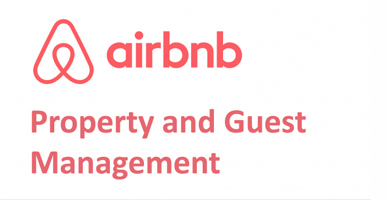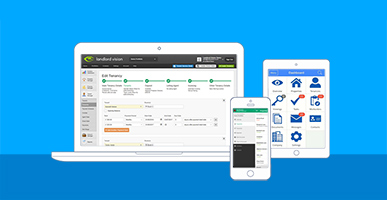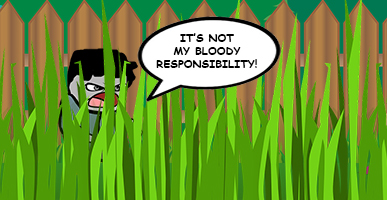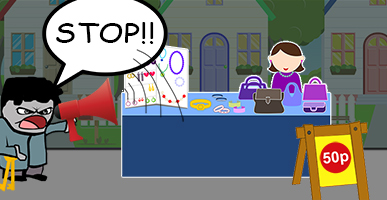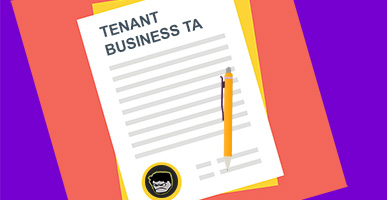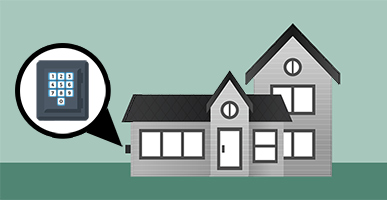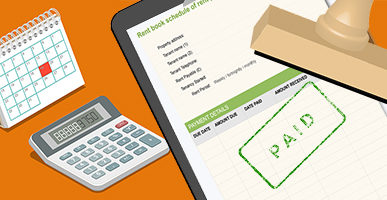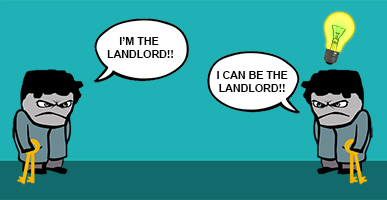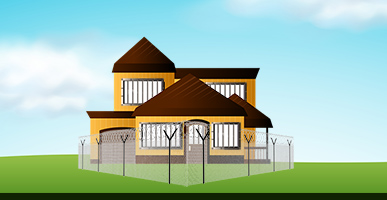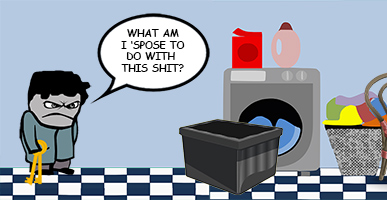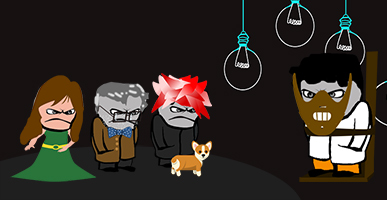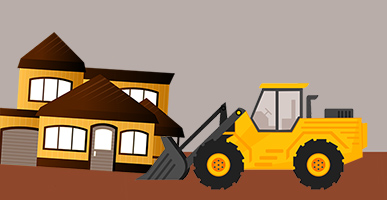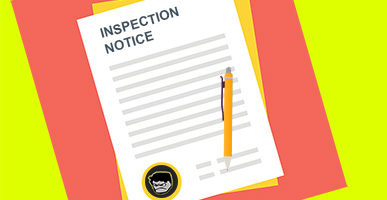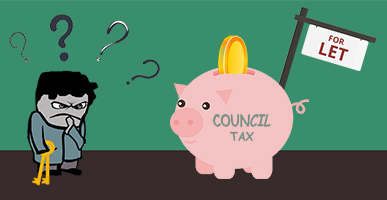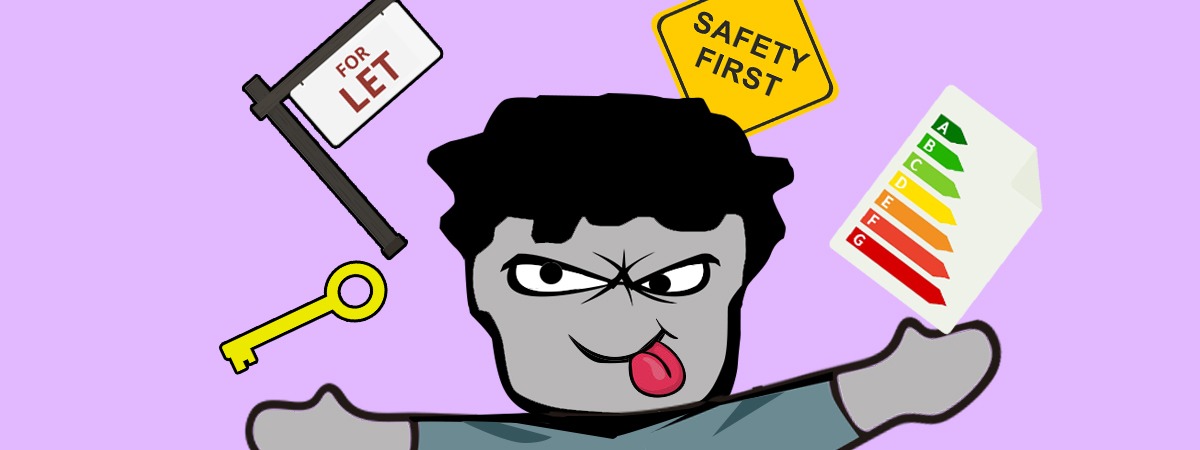
Hello there!
So, this section of my blog is specifically geared towards landlords (in England & Wales) that want to learn about self-managing their rental property(ies) without the aid of a managed lettings service, and in turn say a big F.U to their eye-watering management fees.
If that’s you, stick around! You’re in the right place.
If you’re here looking for information, guidance and low-cost solutions to letting agents and managed services, I’m afraid you’re sniffing around in the wrong end of town – you should be rummaging through the letting agents section. That is home, this is not. So I’ll see you over there.
Okay, so now we’ve put everyone on the right path, let’s continue.
The key areas of managing your own rental property
Obviously I don’t know where you are in your landlord journey – and I don’t know if you’re loving it or if you feel like you’re dragging yourself through the depths of hell – but I’m going to make the assumption that you’re either at the very beginning (i.e. first-time and/or accidental landlord), or you’re a landlord with limited hands-on experience, contemplating the idea of kicking your big, fat glutinous letting agent to the curb so you can take over the reigns. So that puts us all at the same starting point.
You can potentially dissect and organise the key areas of BTL property management in a bazillion different ways, but we need to be practical, so we need to pick our battles by starting with the fundamentals.
Of course, as the saying goes, one man’s fundamentals is another man’s bag of piss. So if you ask another landlord for their insight, they may break down the process differently and effectively disagree with my fundamentals. If that’s the case, I challenge them to write about it on their blog.
Needless to say, they sure as hell won’t be writing about it on the UK’s most popular Landlord Blog, because I’m doing that right now.
What? Too crass? Oh, come on, I just needed a way of reminding you of my credentials so you know you’re not just swallowing the words of any old anonymous donkey on the internet. Probably!
Right, anyways, back to what I would consider to be…
The key areas of managing your rental property:
- Your legal responsibilities
- Repairs & Maintenance
- Rent Collection
- Dealing with Problem Tenants
Now let’s go through each in a little more detail.
Your legal responsibilities
Holy moly, where to start?
Actually, I know where to start. I’m going to be predictable by clarifying that knowing your legal responsibilities is far by the most important aspect of being a landlord, period.
But you knew that.
I’m not going to go into the specifics of your legal responsibilities as a landlord, because I’ve already done that in the landlord legal obligations and responsibilities blog post, so feel free to peruse through that when you’re done here. But what I will do right here, right now, is give you an overarching overview of what is expected of you:
- General safety: as a rule of thumb, you are required to ensure the property is in good and safe working order, including drains, gutters, pipes, gas supply, electrics etc. Everything you’d expect, really.
- Safety checks: make routine safety checks, which includes electrical and gas.
- Deposit: you will need to follow the guidelines on how to manage your tenant’s security deposit.
- Landlord license: you may be required to get a landlord license.
- Tenant eligibility: you will need to check whether your tenant has the legal right to residency in your country.
- Documentation: provide your tenant with key documents, including an Energy Performance Certificate (EPC), and a copy of all safety certificates etc.
- Smoke and Carbon Monoxide alarms must be provided with the property.
A couple of other keys point to note:
- You will always be responsible for your legal responsibilities even if you use a letting agent.
- Changing regulations: the rules are constantly changing – new laws are coming in and old ones are being amended – so it’s important to keep top of it all. One of the best ways to do that is by joining a Landlord Association.
- Tenants have statutory rights: no matter what is written in your tenancy agreement, no clause can impede on your tenant’s statutory rights.
One of the most common that landlords seem to love breaching is the one that grants tenants the right to live in “quiet enjoyment”, which essentially means the tenant’s have the right to live in your property as if it were their home. In practical terms, that means landlords don’t have a right of access – they can’t just walk in and out of the property as they please. Your tenant must grant access and they must be provided with property written notice if you wish to enter. The only exception is in the event of an emergency e.g. fire, burst pipe etc.
Just as a reminder, this was just a brief overview of the responsibilities you will be expected to adhere to.
Oh, and I’m not a legal professional, so you should always seek professional advice from someone qualified to assist with any legal matters.
Repairs & Maintenance
The issue of repairs and maintenance somewhat crosses over with the legal responsibilities section (because there is a legal obligation for landlords to keep their properties in safe working order), but it warrants its own section because attending to repairs and maintenance can also be a moral obligation. I’m going to make two quick points in this section:
First and foremost, Under section 11 of the Landlord and Tenant Act 1985, the landlord is legally responsible to:
- keep the structure and exterior of the property in good repair, including drains, gutters and external pipes
- keep installations for the supply of water, gas, electricity and sanitation in good repair and proper working order
- keep installations for space heating and water heating in good repair and proper working order
Second point, it should be in every landlord’s best interest to keep their properties in good condition (both aesthetically and practical terms), not only will it result in better quality tenants and longer tenures, but it will also keep costs down in the long run. For example, I’ve seen small leaks develop into massive mould and damp issues, which cost a small fortune to repair. Had the landlord have attended the initial small leak, it would have cost peanuts to resolve (in comparison).
I don’t think I need to get into any more detail, because the importance of attending matters of disrepair is mostly common sense. If you feel it’s not, then I fear this whole landlord gig probably isn’t for you.
Rent Collection
Not too much to be said here, but needless to say, pay day is what we live for. So let’s do it right.
If you use a rent collection service you’ll be used to having rent deposited into your account from your agent after they have received it from your tenant, and usually they’ll deduct their management fee from the balance.
There are various methods you can use to collect rent directly from your tenant, but the only one I’m going to recommend is the most common and effective one: get your tenant to set up a standing order.
It’s easy, efficient and clean!
I would avoid accepting cash at all costs, because it doesn’t leave behind a digital footprint (which can be critical to prevent and resolve disputes).
Before bouncing into the next section, I would be remiss if I didn’t mention Rent Guarantee Insurance (RGI) and encourage you to look into it. It’s essentially a nifty little inexpensive insurance policy which insures your rent, meaning that if your tenant falls into arrears, you’re covered. Definitely worth looking into, especially if you’re running on tight margins and rely on rent every month to pay the bills. It could save your bacon.
Dealing with Problem Tenants
Ah yes, we’re here, the underbelly of being a landlord- dealing with bullshit rogue tenants!
If they don’t destroy your soul, they’ll definitely make you stronger.
There’s nothing I can really say to prepare you for this potential dilemma, all I can say is brace yourself. The odds are if you’re a landlord for long enough, you’ll eventually end up with a dud. That’s just the nature of the beast.
Problem tenants commonly show themselves in the following forms:
- Disruptive e.g. display antisocial behavior
- Fall into rent arrears (and make no reasonable effort to pay it back)
- Destructive (they treat your property like a dump)
On the matter of dealing with problem tenants, I can offer you three pieces of advice:
- Nip them in the bud ASAP: if you ever deal with problematic tenants it’s usually always better to act immediately. I wouldn’t recommend hesitating, because the reality is the situation will not get better until the problem vacates the property.
I’ve seen too many landlords sit and wait, hoping the situation will improve because the tenant has made assurances. From my experience, those assurances rarely surface, and waiting only prolongs the inevitable and ends up being the most costly course of action. I’m not saying tenants NEVER end up getting their shit together, because some do, but I’m saying it’s rare, and in any event, you should be proactive from the moment there’s trouble.
On a side note, if you ever need any legal advice related to problem tenants, you can access free advice from LegalforLandlords (one of UK’s most reputable landlord legal firms).
- Prevention is infinitely better than cure: the best way to deal with problematic tenants is to avoid them altogether, and you can do that by following a rigorous and robust tenant referencing process. I can’t emphasise how critical this step is!
- Implement damage control: routine property inspections are so important because they can help landlords identify rogue tenants. I know many landlords don’t bother with them and it blows my puny little mind.
I’m going to mention Rent Guarantee Insurance (RGI) again, because this is when the policy really proves to be worth its weight in gold.
Self-management Vs Managed lettings service
Right, I think I’m done, So it’s over to you…
Hopefully my drivel has allowed you to get a better understanding of what it takes to manage your own rental property (but with the understanding that I only covered four areas and there are plenty more in the beyond).
If you’ve been inspired to manage your own rental property, amazing. I encourage you to continue learning. There’s plenty more resources and guides below.
If you’ve come to the realisation that you don’t want to be so hands-on and you’d rather offload the donkey work to a management agent, then that’s also cool. I totally get it, managing your own rental is a lot of responsibility. My only final piece of advice to you would be to look into some of the cost-effective management solutions available.
Whatever the case maybe, I wish you the best of luck!
Disclaimer: I'm just a landlord blogger; I'm 100% not qualified to give legal or financial advice. I'm a doofus. Any information I share is my unqualified opinion, and should never be construed as professional legal or financial advice. You should definitely get advice from a qualified professional for any legal or financial matters. For more information, please read my full disclaimer.


 Landlord Products / Services
Landlord Products / Services